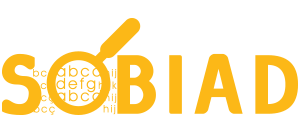HDTV (Hypertension Dailysis and Transplantation Foundation) Partnership
A significant proportion of the founding members of the JEIMP editorial board concurrently serve as distinguished members of both the Board of Directors and the Scientific Committee of the Hypertension, Dialysis and Transplantation Foundation (HDTV). This overlap not only reflects the shared vision and longstanding collaboration between JEIMP and HDTV but also provides a solid foundation for joint scientific advancement and academic excellence in our field. This partnership does not influence editorial decisions, peer review processes, or publication outcomes, which remain under the full and independent authority of the JEIMP editorial leadership.
In recognition of this close relationship, JEIMP will henceforth continue its mission in direct and formal partnership with HDTV. Through a unanimous and formal resolution adopted by its Board of Directors on August 1, 2025, HDTV has designated JEIMP as its sole official journal.
It is important to note, however, that all publishing and broadmark rights pertaining to JEIMP will remain under the stewardship of MKD Digital Publishing. We believe that this collaborative model, anchored in shared leadership yet respecting organizational autonomy, will further enhance the impact and reach of JEIMP, ensuring that it remains at the forefront of scientific publishing in our specialty.









